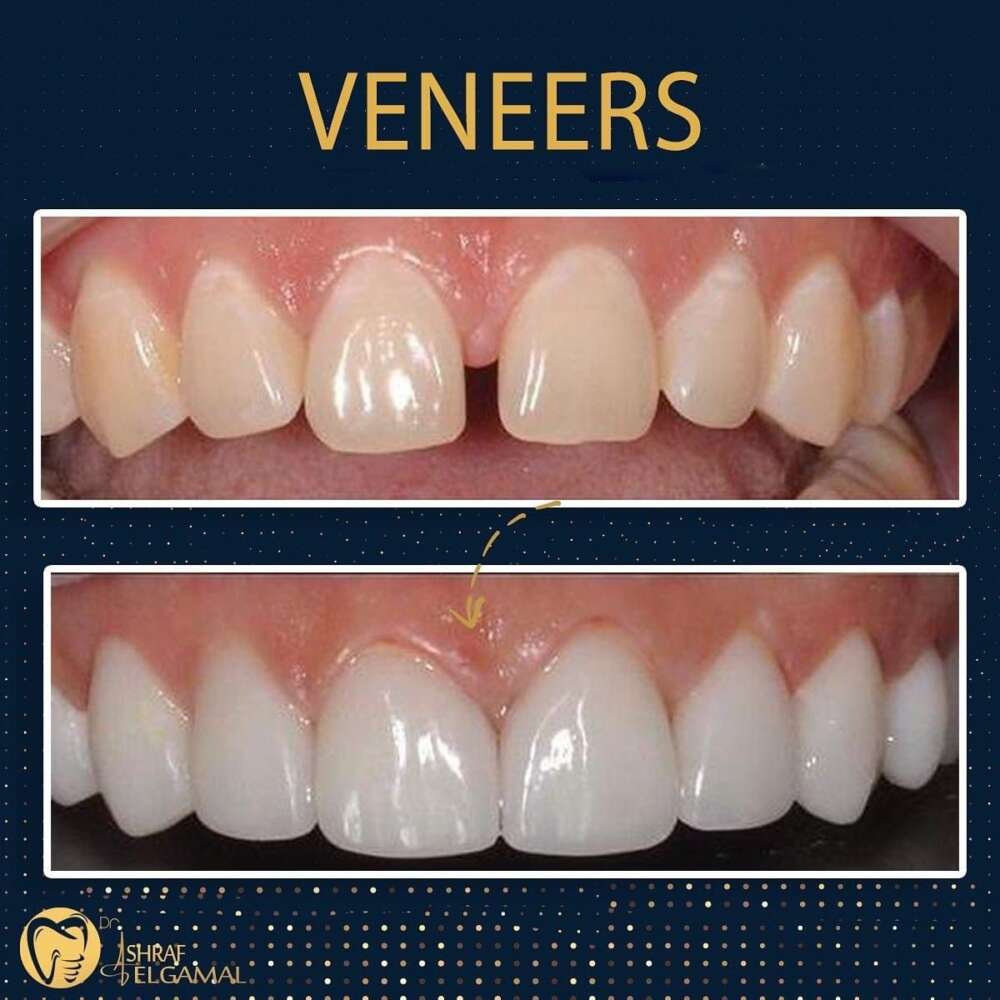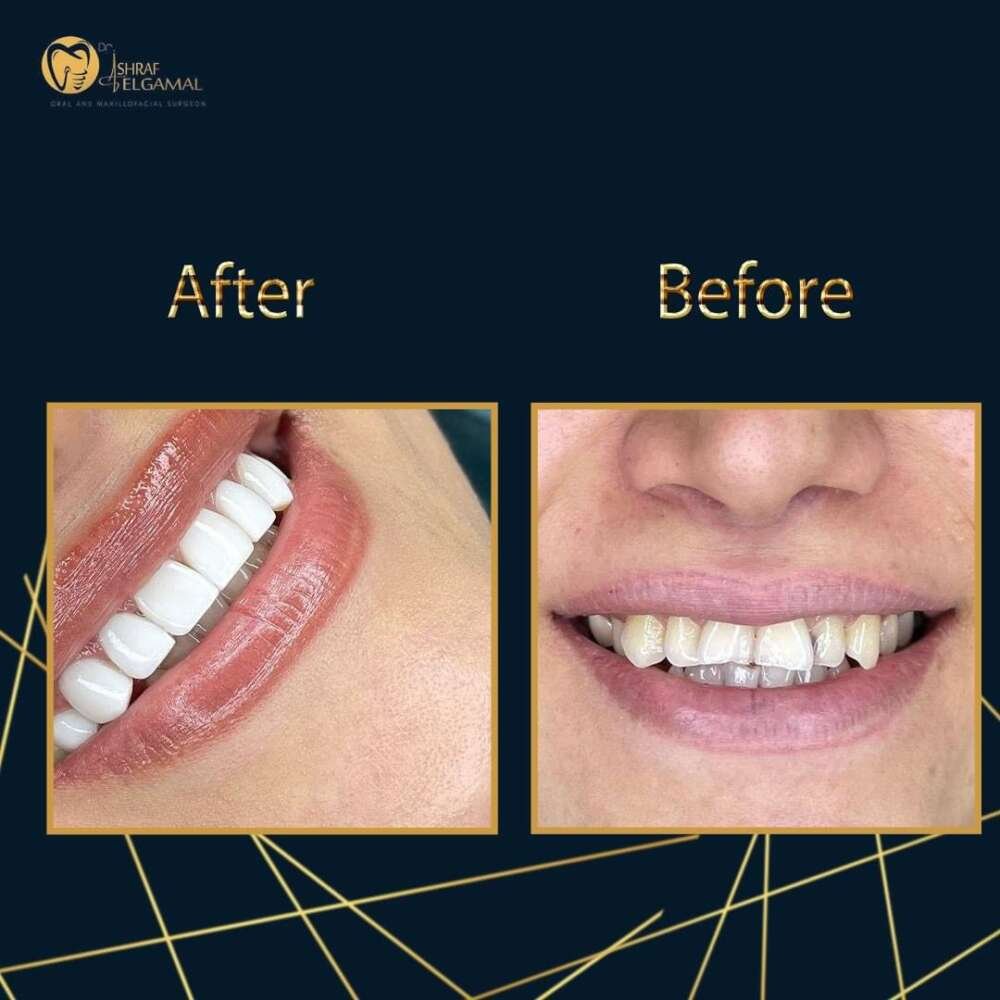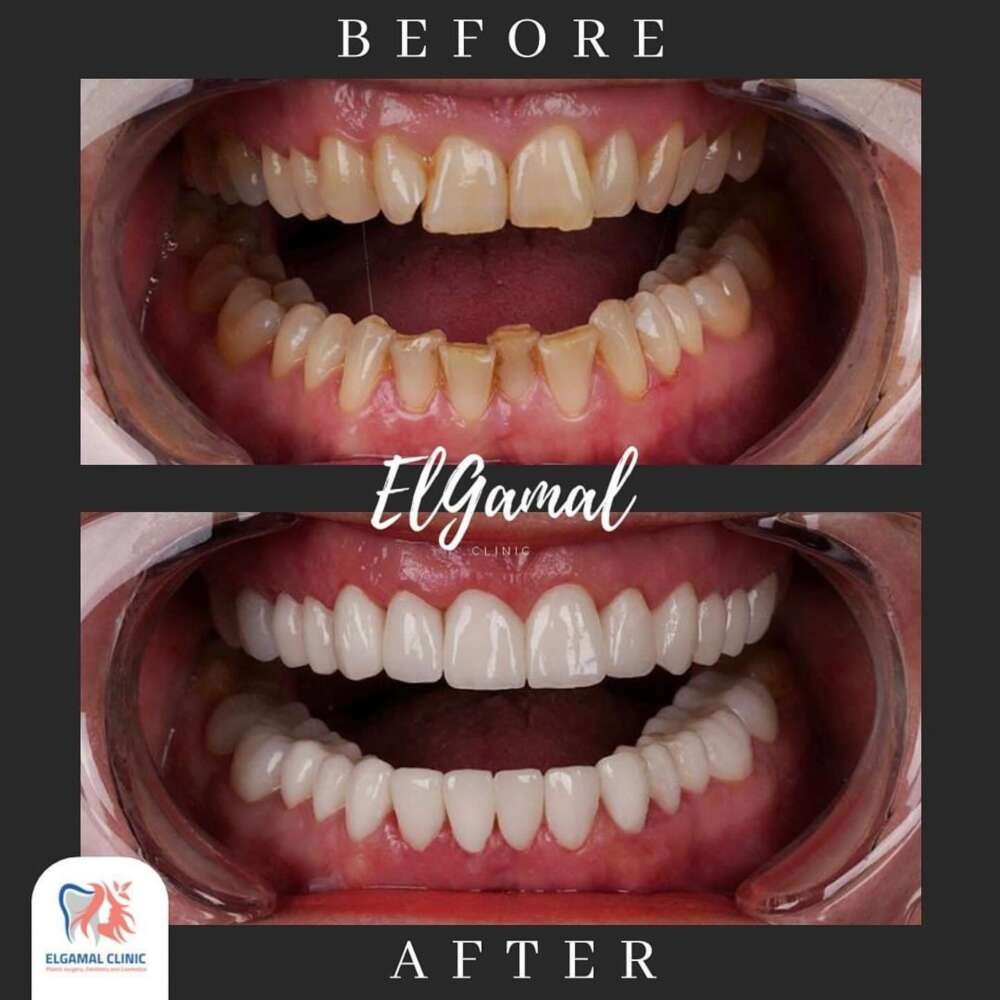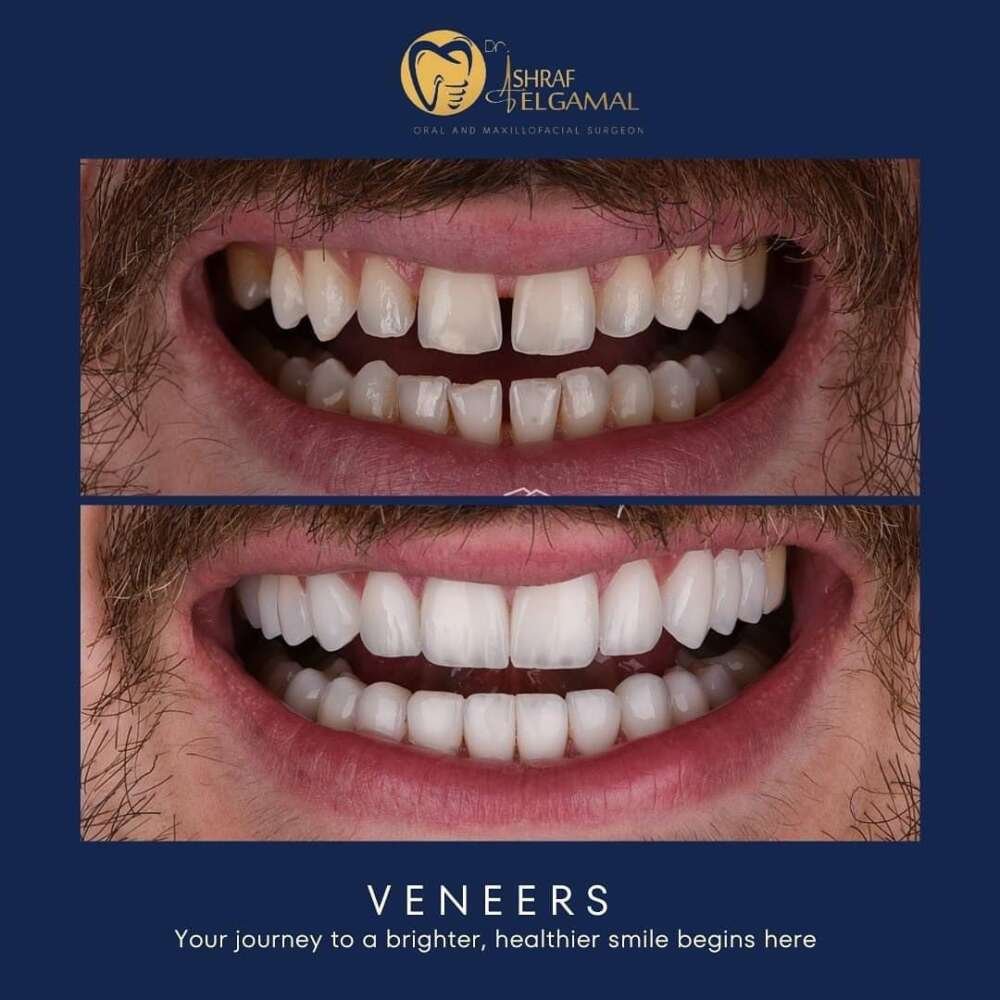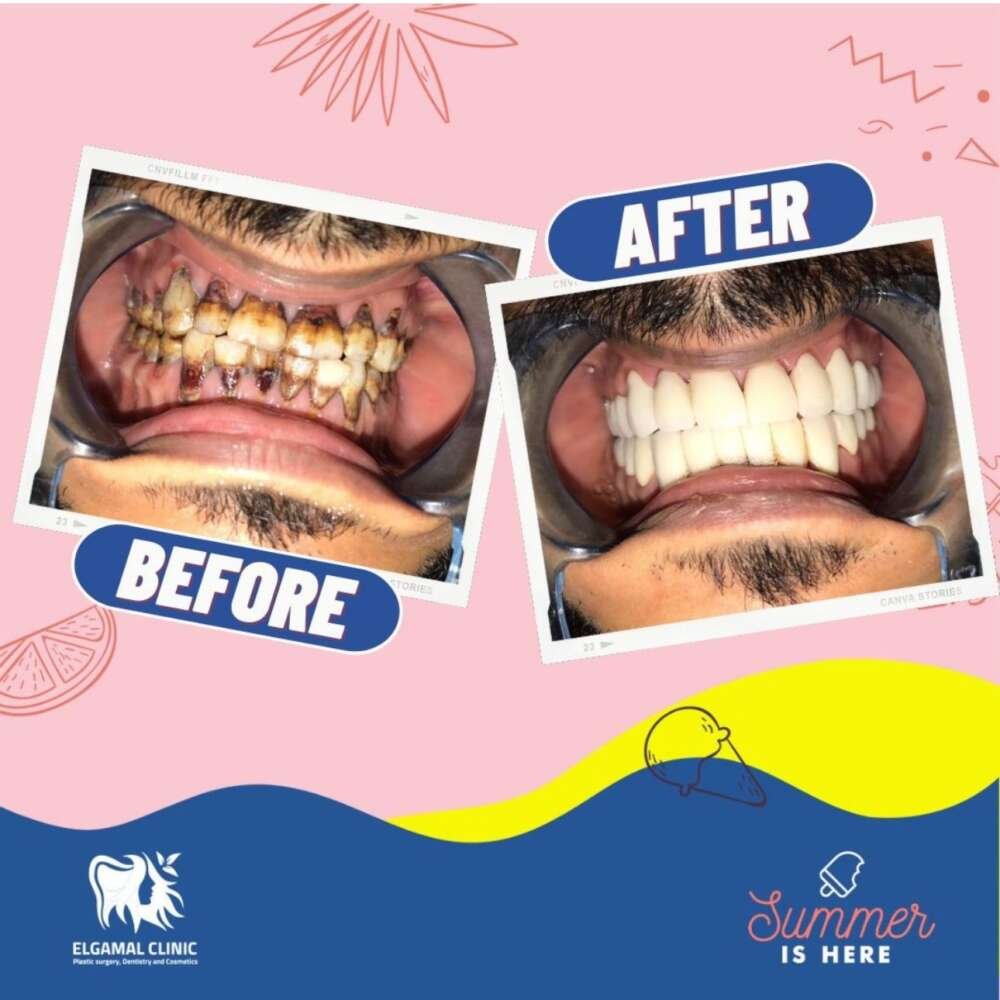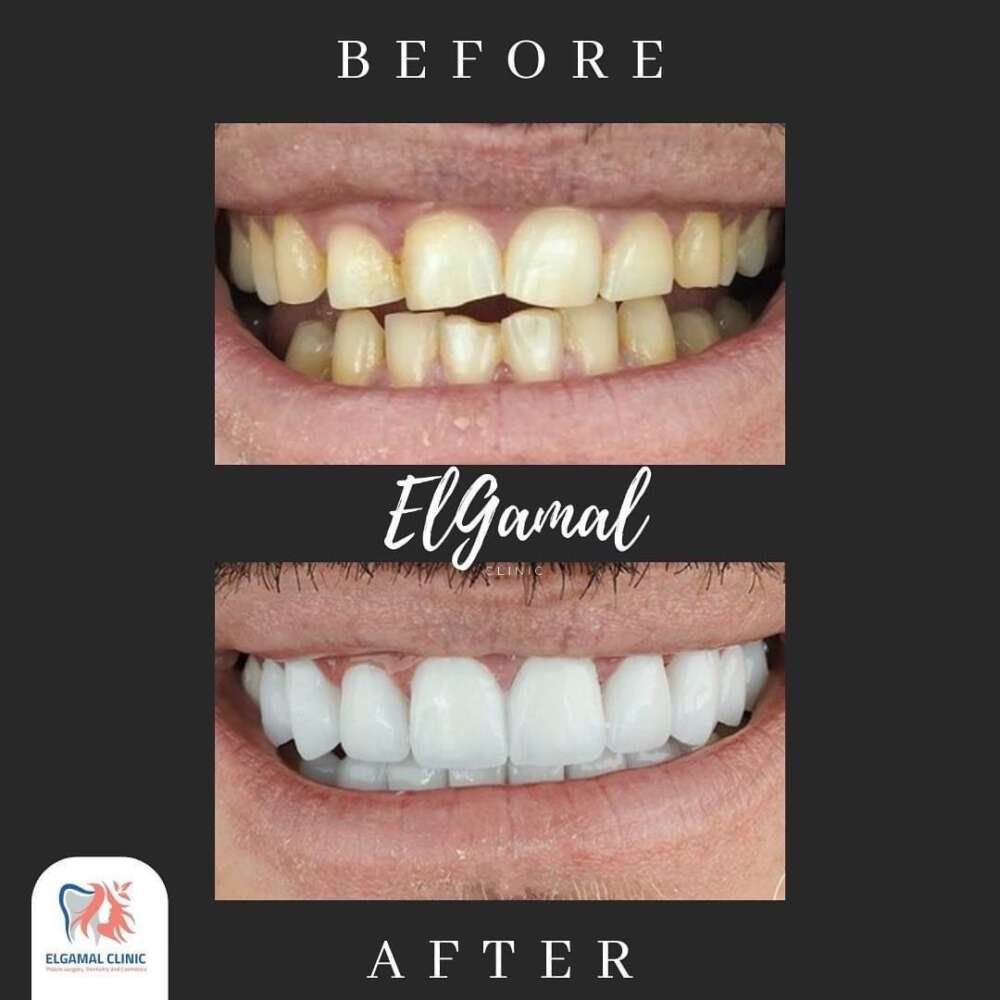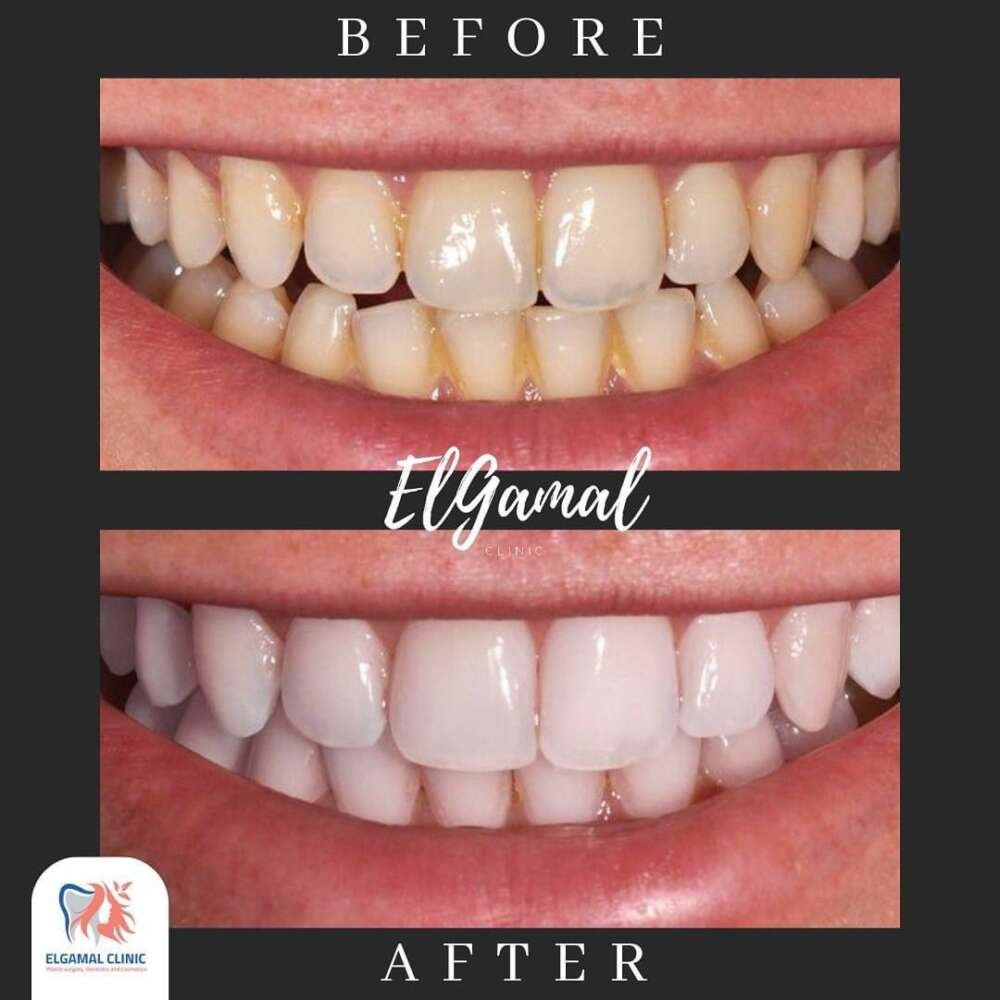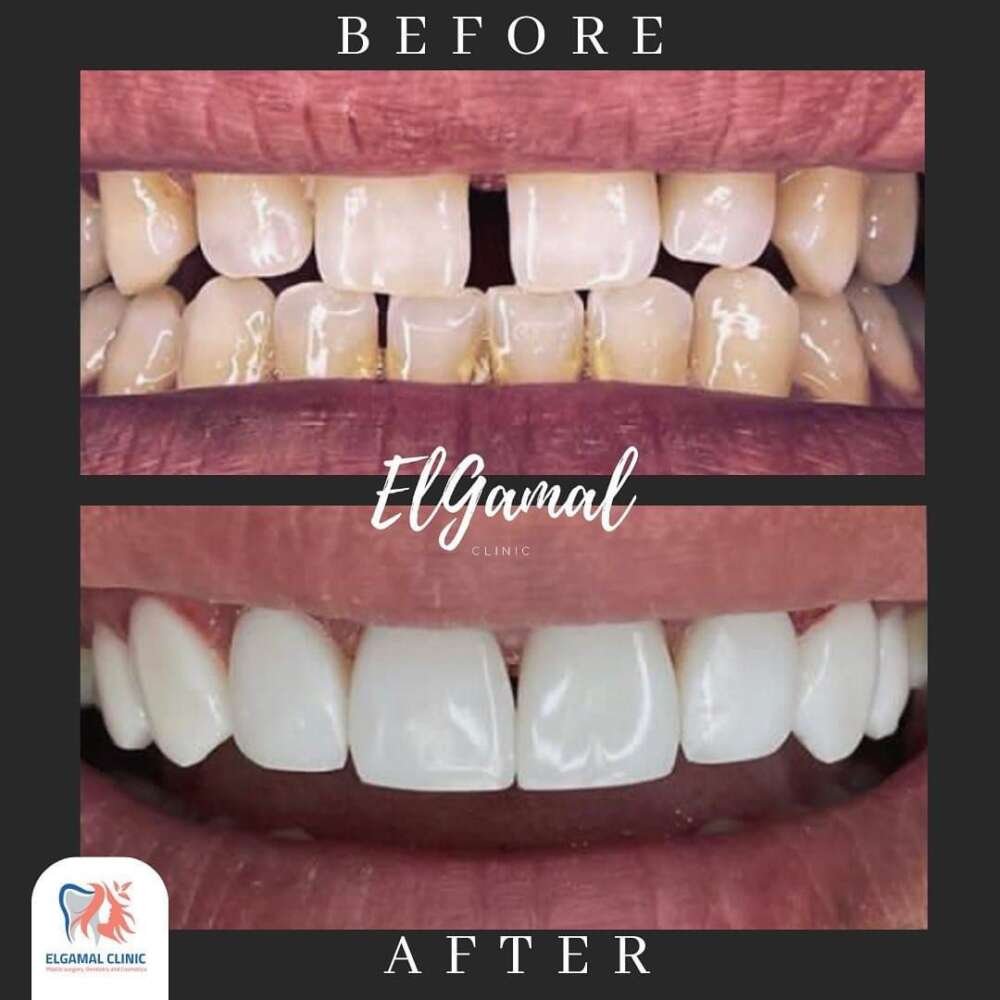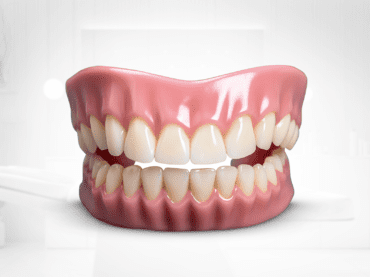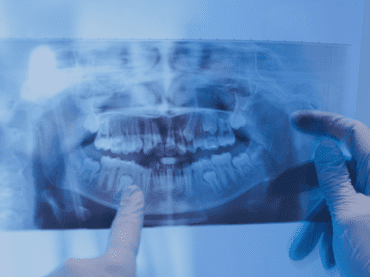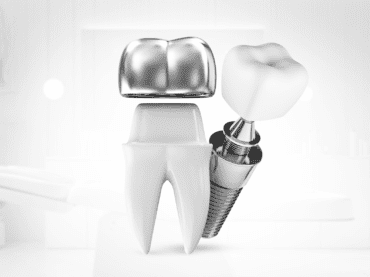الفينير
ما هي الفينير؟
فينير هي أغطية تناسب الأسطح الأمامية لأسنانك. يستخدم الفنيون مواد طب الأسنان عالية الجودة، مثل مركب بلون الأسنان أو البورسلين، لتصنيعها.
فينير الأسنان ذات طبيعة تجميلية. يمكنها إخفاء مجموعة واسعة من العيوب الجمالية، بما في ذلك الرقائق والشقوق والفجوات وتغير لون الأسنان والمزيد.
ما هي مميزات فينير الأسنان؟
تقدم فينير الأسنان عددًا من الفوائد. على سبيل المثال
يمكن فينير أن تحسن مظهر ابتسامتك بشكل كبير.
تمتزج مع أسنانك الطبيعية للحصول على نتائج نابضة بالحياة
الفينير مقاومة للبقع بشكل أفضل من مينا الأسنان الطبيعية
لا تتطلب الفينير الأسنان أي صيانة إضافية
لديهم عمر من 10 إلى 15 سنة مع الرعاية المناسبة
هل الفينير دائمة؟
معظم أنواع الفينير الأسنان دائمة، مما يعني أنها غير قابلة للعكس. بعض أنواع الفينير ، مثل عدم التحضير أو الحد الأدنى من الإعداد، يمكن عكسها.
في المتوسط، تدوم فينير الأسنان ما بين 10 إلى 15 عامًا مع الرعاية والصيانة المناسبة.
النتائج
تساعد فينير الأسنان على تحسين اللون وتوفير شكل طبيعي للأسنان وتقليل الفجوات وإخفاء الكسور وغيرها من الأضرار الطفيفة للأسنان. يمكن أن تتراوح القشرة من حيث التكلفة والمتانة. عادة ما تكون قشور البورسلين أقوى وتدوم لفترة أطول، ولكنها تأتي بسعر أعلى بكثير.
طول العمر
يعتمد العمر الافتراضي لقشرة الأسنان على ما إذا كان لديك قشور خزفية أو مركبة، ومدى العناية بها. يمكن أن تستمر قشور البورسلين لمدة تتراوح بين 10 إلى 12 عامًا. يجب استبدال قشور الراتنج المركبة في وقت أقرب، لأنها تدوم لمدة تتراوح بين 4 إلى 8 سنوات.







